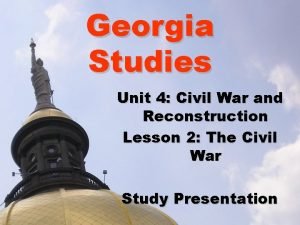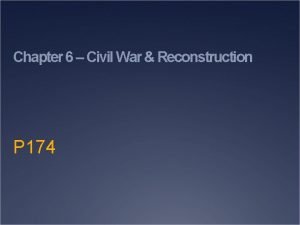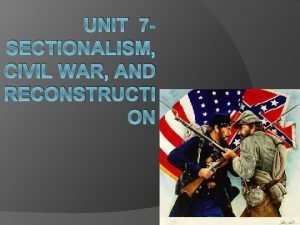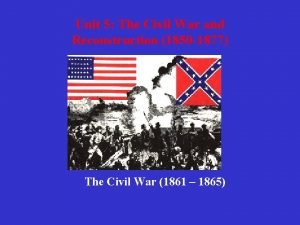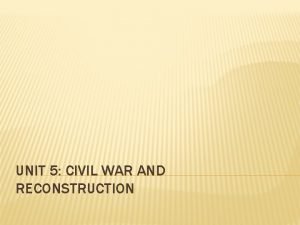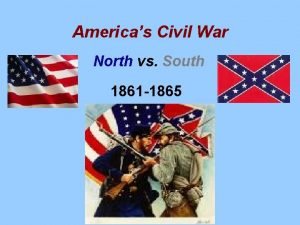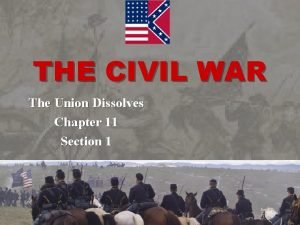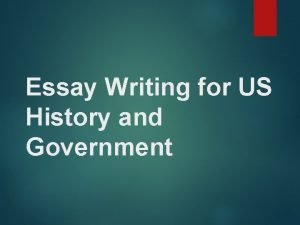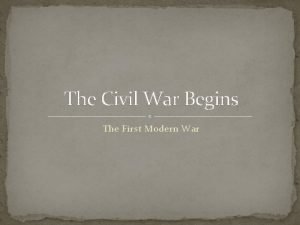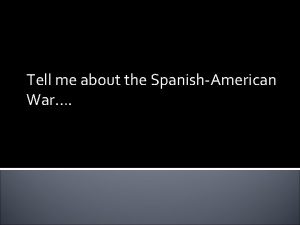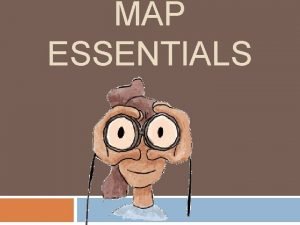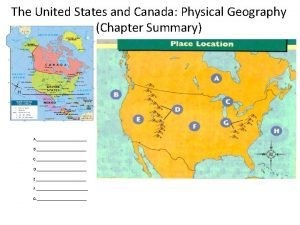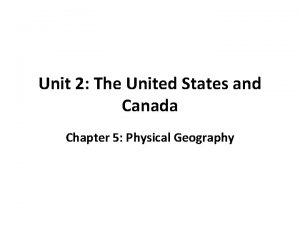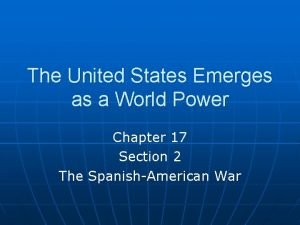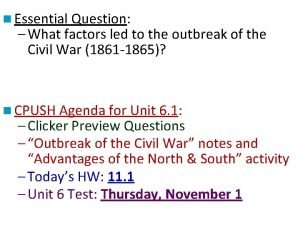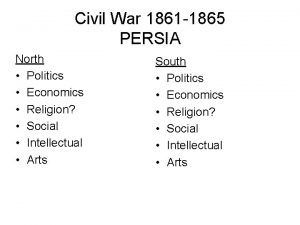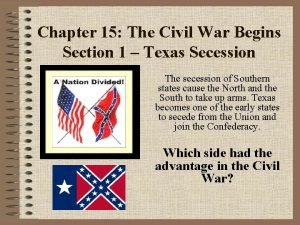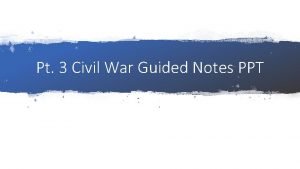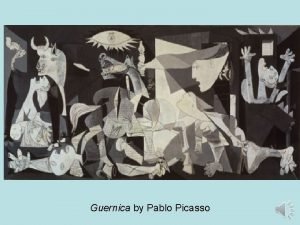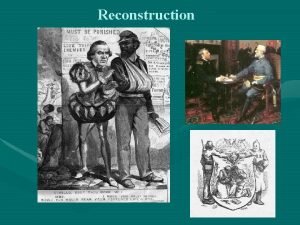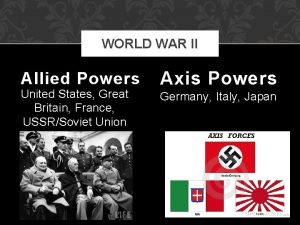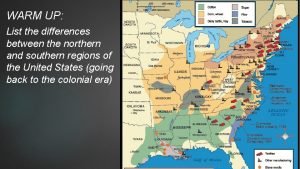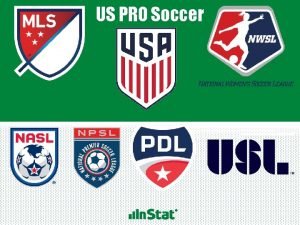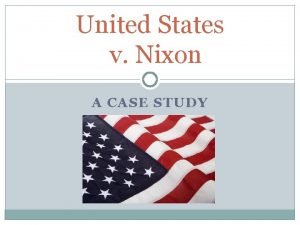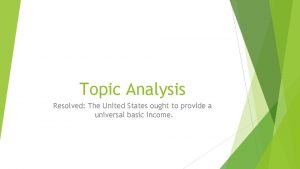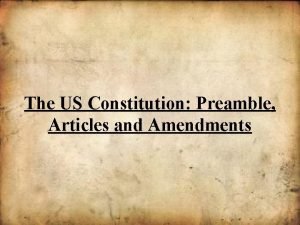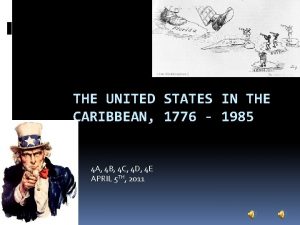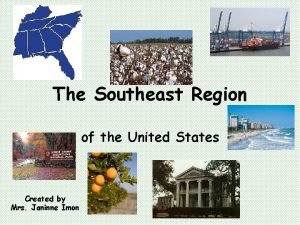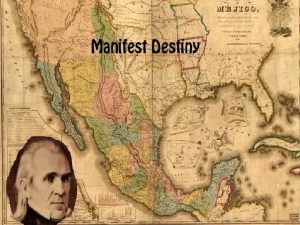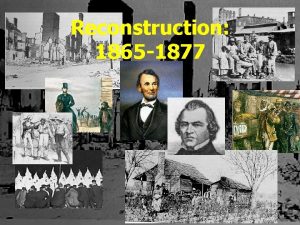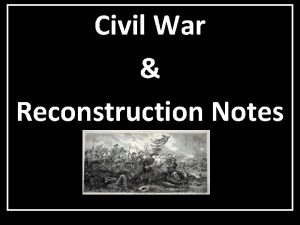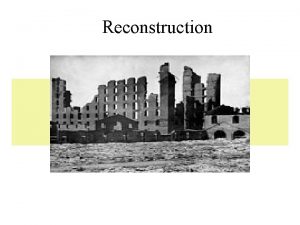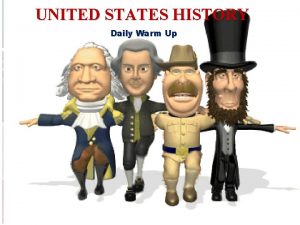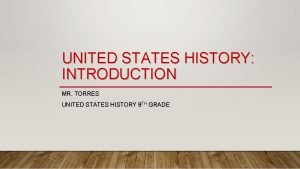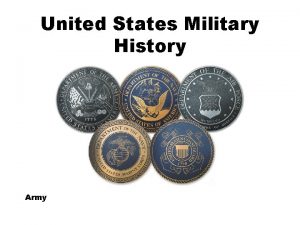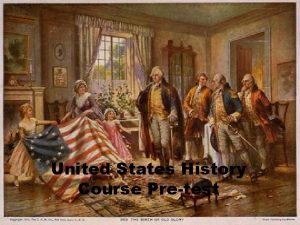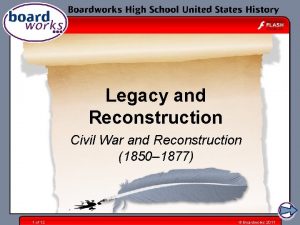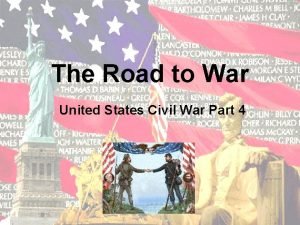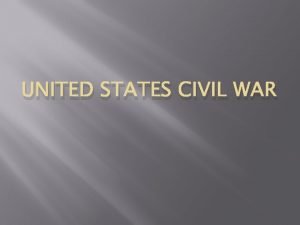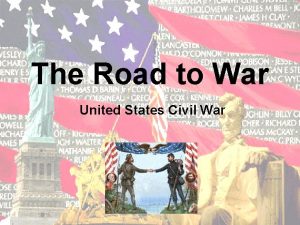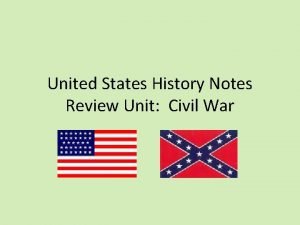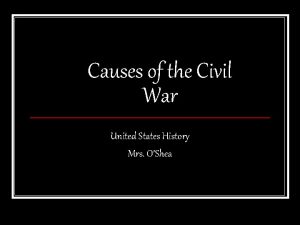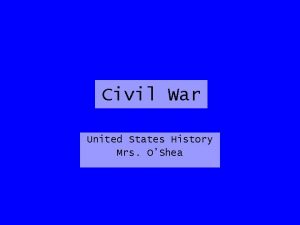Civil War and Reconstruction AP United States History



































- Slides: 35

Civil War and Reconstruction AP United States History Unit 5

The Big Questions of Reconstruction • Who will shape Reconstruction policy – Congress or the President? • Who will govern in the South? Who will have political power (the right to vote, hold office) in the South – ex-Confederates, white loyalists, blacks? • What will be the dimensions of black freedom – politically, economically, socially?

Radical Republicans Charles Sumner Benjamin Butler Thaddeus Stevens Benjamin Wade

Freedmen’s Bureau School

Southern View of the Freedmen’s Bureau


14 th Amendment (1868) • All persons born or naturalized in the United States, and subject to the jurisdiction thereof, are citizens of the United States and of the State wherein they reside. • No State shall make or enforce any law which shall abridge the privileges or immunities of citizens of the United States; nor shall any State deprive any person of life, liberty, or property, without due process of law; nor deny to any person within its jurisdiction the equal protection of the laws.

Military Reconstruction

15 th Amendment (1870) The right of citizens of the United States to vote shall not be denied or abridged by the United States or by any State on account of race, color, or previous condition of servitude.

“The First Vote” (1867)

Only Johnson’s rhetoric was harsh… • “Treason must be made odious. . . traitors must be punished and impoverished. . . their social power must be destroyed. ” • “Damn the negroes! I am fighting those traitorous aristocrats, their masters. ” • “I intend to confiscate the lands of these rich men whom I have excluded from pardon by my proclamation, and divide the proceeds thereof among the families of the wool hat boys, the Confederate soldiers, whom these men forced into battle to protect their property in slaves. ”

Johnson’s racism was evident… • “This is a country for white men, and by God, as long as I am President, it shall be a government for white men. ” • “Is there an intelligent man throughout the whole country…who will come forward and say that he believes that Mr. Jefferson, when he penned…the Declaration of Independence, intended it to embrace the African population? ”

Johnson vs. Congress Action Response Result Johnson pardoned over 13, 000 Republican Congress ex-Confederates, allowing refused to seat them many to be elected to Congress renewed the Freedmen’s Bureau Johnson vetoed bill Congress overrode his veto (first in US history) Congress passed the Civil Rights Bill of 1866 to counter the Black Codes Johnson vetoed bill Congress overrode his veto Congress passed the Tenure of Office Act to protect Radical Republicans in Cabinet Johnson challenged by firing Secretary of War Edwin Stanton Congress impeached Johnson (first in US history)

Johnson vs. Congress

Impeachment Process • House of Representatives drafts an article(s) of impeachment accusing President of “treason, bribery, or other high crimes and misdemeanors” • if a simple majority of the House votes in favor of any article, the President is impeached (indicted) and tried by Senate • if a 2/3 majority of the Senate votes to convict, the President is removed from office

Impeachment of Andrew Johnson

Impeachment of Andrew Johnson

Carpetbaggers



Black Codes • defined a “person of color” as having a black ancestor (“onedrop” rule) • prevented blacks from voting, holding office, or serving on juries • prevented blacks from serving in state militias (restricted them from bearing arms) • required “vagrants” (poor blacks who were not employed or sharecropping) to be arrested • restricted blacks’ ability to borrow money or purchase land, essentially mandating sharecropping • prohibited interracial marriage and required black marriages to be recorded in separate public records • some black codes were abolished during Radical Reconstruction; many, however, resurfaced after 1877 and existed well into the 20 th century (Jim Crow laws)

Sharecropping

Sharecropping Contract • What did the landowner provide under this contract, and what was his return? • What did the sharecropper provide, and what did he receive from the contract? • Why do you think the contract forbid sharecroppers from planting “vine crops of any description? ” Or stipulated that “croppers are to have no part or interest in the cotton seed raised from the crop? ” • The contract stipulates that the sharecropper will be paid upon sale of the crops only “after deducting all they may owe me and all sums that I may be responsible for on their accounts. ” Given that the South was a cash-poor region, what do you think happened when sharecroppers bought goods on credit, and these accounts were settled? • The South was also overwhelmingly rural. What do you think happened when sharecroppers had no option but to buy from the nearest local merchant, sometimes the very landowner he worked for? • Who had the final determination as to the quality of work to be performed under this contract, and what was the penalty for failing to work up to standards? • Who had the right to sell the crop? What limitations were placed upon the seller? • Imagine a bumper crop year. Can you think of ways that a landowner could manipulate this contract to assure that the sharecropper made no profit?

The Grant Presidency (1869 -1877)

Election of 1868

Grant Administration Scandals

Ku Klux Klan • 1 st KKK (1865 -1870 s) – 500, 000 members – ex-Confederates • 2 nd KKK (1915 -1920 s) – – 4, 000 members anti-immigrant Midwest (Indiana, Ohio) 1924 peak • 3 rd KKK (post-WWII) – 2, 500? members – decentralized

A Third Term? Grant in 1880

Grant in Memory


Election of 1876 Rutherford B. Hayes (R-OH) 185 EV 47. 9% PV Samuel J. Tilden (D-NY) 184 EV 51. 0% PV

Election of 1876

Compromise of 1877: Another “Corrupt Bargain? ”

“Tilden or Blood”

Essay 5 -1 In what ways and to what extent did constitutional and social developments between 1860 and 1877 amount to a revolution?
 Unit 4 civil war and reconstruction
Unit 4 civil war and reconstruction Civil war and reconstruction study guide
Civil war and reconstruction study guide Chapter 6 civil war and reconstruction
Chapter 6 civil war and reconstruction Remembering world war 1 achieve 3000
Remembering world war 1 achieve 3000 Unit 5 civil war and reconstruction
Unit 5 civil war and reconstruction Unit 5 civil war and reconstruction
Unit 5 civil war and reconstruction North and south states civil war
North and south states civil war Us north vs south
Us north vs south Toward civil war lesson 3 secession and war
Toward civil war lesson 3 secession and war Southern states civil war
Southern states civil war Us history regents essay
Us history regents essay Why was the civil war the first modern war
Why was the civil war the first modern war Civil rights and civil liberties webquest
Civil rights and civil liberties webquest Author of awake united states
Author of awake united states United states and canada physical map
United states and canada physical map Earth latitude and longitude map
Earth latitude and longitude map Climate zones of the united states
Climate zones of the united states The physical geography of the united states and canada
The physical geography of the united states and canada Unit 2 the united states and canada worksheet answers
Unit 2 the united states and canada worksheet answers United states acquisitions and annexations 1857-1904
United states acquisitions and annexations 1857-1904 Cotton diplomacy
Cotton diplomacy Civil war advantages and disadvantages chart
Civil war advantages and disadvantages chart States rights
States rights Civil war ppt and guided notes
Civil war ppt and guided notes Picasso
Picasso In american history the term reconstruction refers to
In american history the term reconstruction refers to Was the united states on the axis powers or allied powers?
Was the united states on the axis powers or allied powers? Sectionalism map of the united states
Sectionalism map of the united states Us pro soccer organization
Us pro soccer organization United states v. nixon significance
United states v. nixon significance United states student association
United states student association The united states ought to provide a universal basic income
The united states ought to provide a universal basic income Preamble of the constitution
Preamble of the constitution The united states in the caribbean 1776 to 1985
The united states in the caribbean 1776 to 1985 Physical features of the southeast region
Physical features of the southeast region Expansion of the united states of america 1607 to 1853 map
Expansion of the united states of america 1607 to 1853 map
